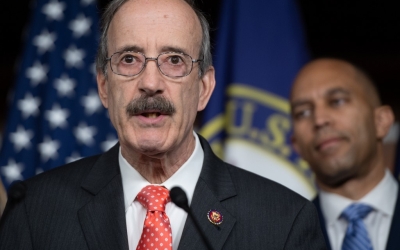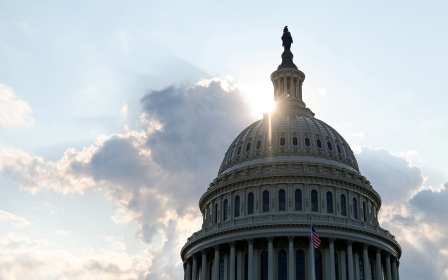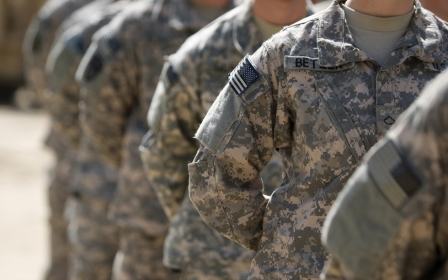House Democrats grill Pompeo during long-awaited Iran testimony

Democrats on the House Foreign Affairs Committee did little to hide their frustrations with the Trump administration during Secretary of State Mike Pompeo's long-awaited testimony on Iran.
Pompeo spoke before the committee on Friday, after having rejected two previous invitations to testify on the US's deadly January strike against top Iranian general Qassem Soleimani.
The secretary was questioned on details that led up to the attack during the two-hour hearing, which on several occasions devolved into infighting between Democrat and Republican lawmakers.
Congressman David Cicilline, a Democrat from Rhode Island, was the first to question Pompeo, telling the secretary that he and his colleagues feared the administration's pressure campaign against Iran has been counter intuitive.
"I'm concerned that the so-called 'maximum pressure campaign' against Iran has not achieved what you promised it would," Cicilline began.
"Since January 2nd there have been four Iranian attacks on American personnel, we've had to deploy 6,000 additional troops to the region and Iran is once again on the path to a nuclear weapon," Cicilline said.
Tensions between the US and Iran began heating up in May 2018 after the Trump administration pulled out of the multilateral Obama-era nuclear deal and began re-imposing crippling sanctions on Tehran.
Soleimani, Iran's top military general and a highly influential official, was killed in Baghdad in early January in a US strike, after months of escalating tensions.
Immediately afterwards, Democrats expressed concern that Congress had not been notified before the assassination and had not given approval for the military action.
Throughout the hearing on Friday, Pompeo doubled down on the Trump administration's stance that the US strike against Soleimani was taken to prevent "an imminent attack" against American personnel and four US embassies.
"He was in the region actively plotting to kill Americans," Pompeo told the committee.
"It was my judgment that this [strike] reduced risks to Americans," the secretary continued.
Lawmakers on Friday pushed for more information regarding intelligence gathered before the strike, with Congressman Andy Levin, a Democrat, pulling up a world map on the committee's TV screen, asking the secretary to point to the location of the four embassies that were allegedly being targeted.
Pompeo continuously told lawmakers that details of the intelligence that led to the strike, including the location of the four embassies, were classified.
"You can't hide behind classification on this one because you can't classify something that doesn't exist," Levin told Pompeo.
Pompeo also took heat for the Trump administration's reports regarding injuries to US personnel in the days following Iran's retaliatory strike on an Iraqi base housing US troops. US President Donald Trump had announced that no American was injured in that strike.
About two weeks later, reports emerged that several US personnel had been evacuated from Iraq and hospitalised for Traumatic Brain Injuries (TBI), which Trump at the time referred to as "headaches".
After weeks of uncertainty, it was finally reported that 110 American personnel had suffered from TBIs, 30 of whom remain hospitalised.
Congressman Brad Sherman, a Democrat, charged Pompeo and the Trump administration with "trivialising" those injuries - an accusation Pompeo strongly denied.
"We take seriously every American service member's life," Pompeo told the committee, without explaining the discrepancies in the initial reporting of the injuries.
Pompeo was also repeatedly criticised for only offering the committee two hours of his time on Friday after twice rejecting an invitation from the committee to testify.
Lawmakers made note several times that in October 2015, former secretary of state Hillary Clinton testified before the committee for 11 hours during a congressional investigation into a deadly attack on a US embassy in Benghazi in 2012.
At the time, Pompeo sat on the committee as a Republican lawmaker representing the state of Kansas and grilled Clinton during her testimony.
Pompeo shot back against the criticism, telling the committee that the Trump administration has briefed Congress 70 times in various forms following its strike against Soleimani.
At the start of the hearing, several anti-war protesters who held signs and wore pink shirts that read "Peace with Iran" were escorted out of the room. Others who wore the same shirts but remained seated were permitted to stay.
Middle East Eye delivers independent and unrivalled coverage and analysis of the Middle East, North Africa and beyond. To learn more about republishing this content and the associated fees, please fill out this form. More about MEE can be found here.





